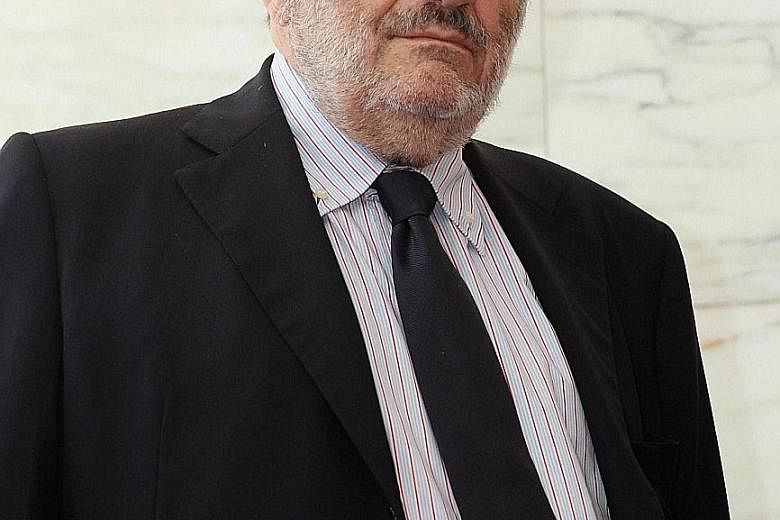•ROME • Italy was in mourning yesterday following the death of Umberto Eco, the intellectual and literary giant who wrote The Name Of The Rose and was cherished as one of the country's favourite sons.
Eco, who had been suffering from cancer, passed away at his Milan home late on Friday, his family told Italian media. He was 84.
Italian Prime Minister Matteo Renzi led tributes to the philosopher and semiotics lecturer who once famously described writing best-selling, heavyweight novels as "something I do at the weekends".
"He was an extraordinary example of a European intellectual," Mr Renzi said. "He embodied both the unique intelligence of the past and a tireless capacity for anticipating the future."
Friends remember a gentle man who enjoyed whisky and wordplay in equal measure and had a nice line in self-deprecating humour. In recent years he had taken to joking after receiving prizes: "From now on, it's the Nobel or nothing."
The Nobel never came but Eco was revered worldwide, largely thanks to the blockbuster novel that became a hit film starring Sean Connery in the then unlikely role of a medieval monk with the brilliance of Sherlock Holmes.
Jean-Jacques Annaud, the French director of film, said Eco was a "fascinating person" who respected his right to bring the complex, genre- bending novel to the screen in his own way. "We visited a lot of monasteries, he had incredible energy," he told France Info radio station.
La Repubblica, the Bologna daily which Eco frequently wrote for, said: "The world has lost one of the most important men in contemporary culture."
Flags flew at half-mast in Alessandria, the town in Piedmont where Eco was born on Jan 5, 1932. He is survived by his wife, Renate Ramge Eco, a German art teacher whom he married in 1962 and with whom he had a son and a daughter.
His family name was reportedly an acronym of the Latin ex caelis oblatus, "a gift from the heavens", which was given to his grandfather, a founding father, by a city official.
The young Umberto had a Roman Catholic upbringing, studying at one of the Salesian institution's schools. His father was keen for him to read law, but instead he took up medieval philosophy and literature at the University of Turin. In the late 1950s, he started to develop ideas on semiotics - the study of signs, communicated either as spoken, written, scientific or artistic language. He was appointed professor of semiotics at Bologna University in the 1970s and was to spend 40 years teaching at the ancient academic institution.
His move from the tweedy world of academia to global fame came in 1980 with the success of The Name Of The Rose, which has since been translated into 43 languages and sold more than 10 million copies.
AGENCE FRANCE PRESSE

